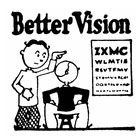
To Penetrate, to See
...OR MERELY TO STARE AT A SCREEN
The Gospel of John tells the story of Nicodemus, a Pharisee, who goes out at night to speak with Jesus. “Rabbi,” he says, “we know you are a teacher come from God, for no one can work the signs that you work unless God is with him” (3:2). Jesus’ answer seems to come out of nowhere, with no direct relation to Nicodemus’s statement: “Amen, amen I say to you, unless a man is born again, he cannot see the kingdom of God.”
Nicodemus affirms Jesus as a great teacher, then Jesus responds with vague references to seeing and being born. What’s going on? When the reader, however, plugs in the setting of the narrative, a pattern begins to emerge: Nicodemus comes out at night, meaning, simply, that he is in the dark. We then recognize that he is in the dark about who Jesus is. A teacher from God is a good thing, but it’s a long way from being God Himself. Nicodemus’s problem, then, is that he doesn’t see. While he thinks he has come to see a great teacher, he actually looks upon — but does not see — the Kingdom of God.
Nicodemus is not very different from the rest of us. There are layers of seeing involved in almost everything we meet in the course of our days, yet very few of us pierce through.
At the other side of the table at which I now sit, for example, there is a wooden chair. That is what I see at the first level. Looking further, I see that it is an older chair, made probably in the 1940s. Then I see the metal rods that pass from leg to leg — structural support added to the aging chair some thirty years ago by a Saturday-afternoon handyman. A little story is beginning to evolve; it is still a chair, but more than a chair, it is something with a history, something that has been valued and cared for.
You May Also Enjoy
"Gay consumers are wealthier than average, and loyal to brands that they perceive as gay-friendly," according to Reuters.
Review of Modernity and the Holocaust
Mistaken about Marriage... Identifying Value Despair... Foolish Fighting Words... Our Fork in the Road... A Weapon for Spiritual Battle... and more

